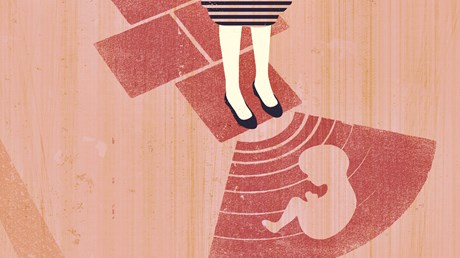Journeying back to America before Roe v. Wade is like entering The Twilight Zone.

Historians have a favorite saying: “The past is like a foreign country.” When we travel there, we meet people who think and act very differently. We return home with a new perspective, recognizing how much we take for granted, how much is far from inevitable.
For a powerful illustration of this truth, look no further than Daniel K. Williams’s masterful new book, Defenders of the Unborn: The Pro-Life Movement before Roe v. Wade (Oxford University Press). When readers turn the final page, they may feel like they have visited not just a different country, but a different universe.
The Twilight Zone
When the Supreme Court decided Roe v. Wade in 1973, only one in six of today’s Americans were adults. The rest of us have grown up in a later age. In the world we know, abortion has always been a constitutionally protected right. It has always pitted Republicans against Democrats, conservatives against liberals, Christians against secularists.
But the world has not always been this way.
Consider the following features of the period that Williams focuses on, roughly the four decades prior to Roe v. Wade. For most of these years:
- Evangelicals mostly watched from the sidelines as Catholics stood in defense of the unborn.
- Women rarely played visible roles on either side of the debate. Abortion was a matter of public health or social justice, not a question of sexual equality.
- Pro-lifers were often political liberals; political conservatives thought abortion laws were too strict.
- Republicans were slightly more likely than Democrats to favor total legalization of abortion in the first trimester of pregnancy. While Ronald Reagan was signing an abortion liberalization law in California, Ted Kennedy was endorsing the “right to life” in Massachusetts.
Source: Christianity Today Most Read